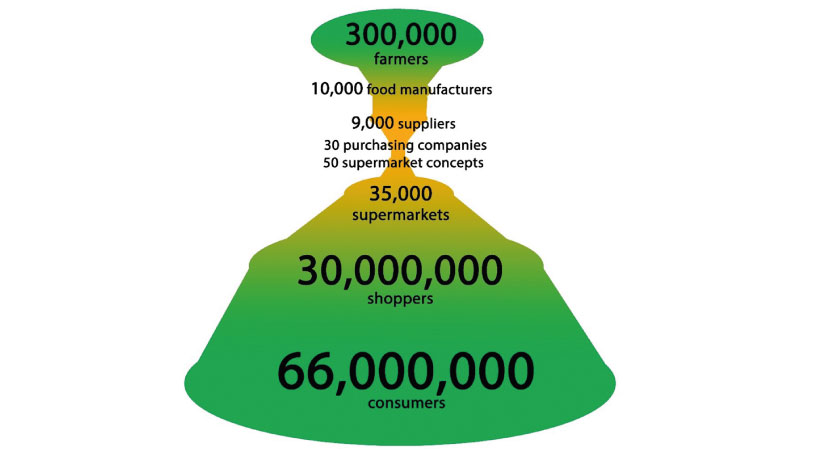One aspect of the COCOREADO project is advancing sustainable public procurement and ensuring that small-scale farmers play a central role. Small-scale farmers are innovative and often base their production on more sustainable practices, such as regenerative and organic farming, but it is generally difficult for them to become suppliers to public costumers. A first step towards making public procurement more sustainable is to identify the barriers that keep the innovative, sustainability-conscious small-scale farmers out of the public market so that we can – in time – break them down. Discussions about sustainable public procurement often take place between procurement officers, wholesalers and policy-makers, in effect copying the bottleneck structure of the overall food system.

Food system bottleneck: Typical food chain in a western country, represented by the food system of the United Kingdom. Adapted from Bakalis et al., 2022 (doi: 10.1016/j.crfs.2020.05.003).
An initial focus of the University of Copenhagen has been to establish contact to small-scale producers in Denmark, and start a dialogue on the barriers they experience. Over the last weeks we have been busy identifying and contacting relevant farmers, inviting them to participate in interviews or a focus group. Not surprisingly, the number of small-scale farmers who have actual experience with public procurement is very small! Luckily, this research will be copied by other COCOREADO partners from other locations in Europe during the fall of 2022. This means that by next year we will have a much more diverse chorus of farmers’ experience to draw upon when we in early 2023 plan to host a multi-stakeholder workshop on how to achieve more sustainable public procurement.
Adam Addis Prag – UCPH

